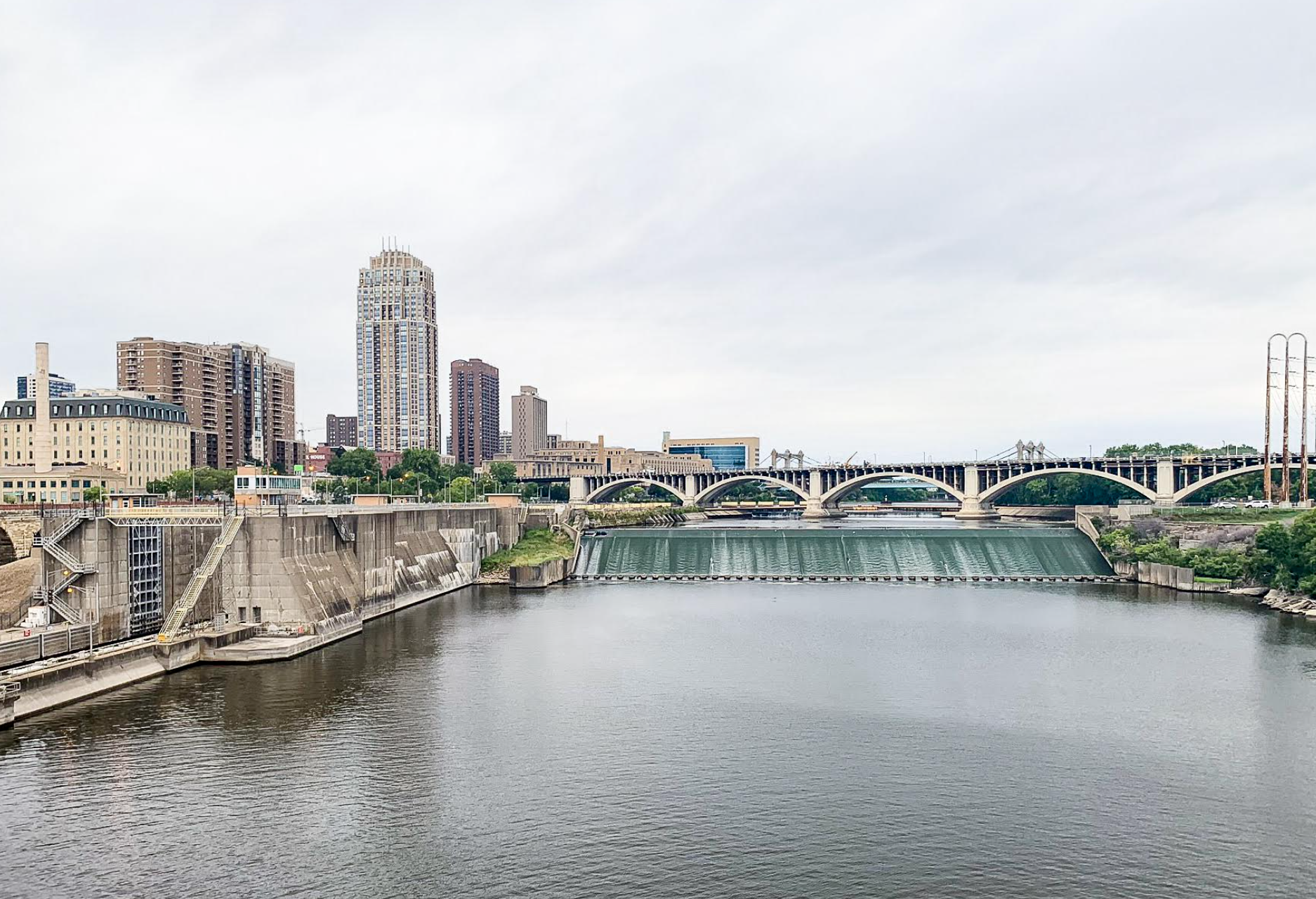
- Details
- By Shelley Buck (Tinta Wita Dakota)
Guest Opinion. For generations, our Dakota ancestors traveled to Owámniyomni, a sacred place where the raging waters of Ȟaȟa Wakpá (the Mississippi River) cascaded over a 50-foot limestone drop in what is now the heart of downtown Minneapolis, Minnesota. They came to this site where the physical and spiritual worlds blend for ceremony and to connect with our creator and natural relatives. Dakota women also journeyed to nearby Wíta Wanáǧi (Spirit Island), an island in the mist kicked up from the falling water, to give birth.
Over the course of more than 200 years, colonization and industrialization sought to destroy the Dakota peoples’ connection at Owámniyomni. Industrialists saw the river as a resource to be extracted. Our Native history and voices were rendered invisible. And the millions of people who visit this area each year have no awareness of its sacred history.
But on June 25, we entered a new period of healing. At a Victory Celebration alongside the river, we marked a major milestone in restoring Dakota voices, visibility and culture at Owámniyomni.
This spring, the Dakota-led nonprofit Owámniyomni Okhódayapi signed a 25-year lease with the U.S. Army Corps of Engineers giving it site control of five acres of land adjacent to the river. Owámniyomni Okhódayapi – in partnership with Minnesota’s four Dakota tribes – is beginning to reclaim our cultural connection to this land. We are creating opportunities for Dakota, Native and non-Native people to learn the rich history and significance of this site, long before white settlers renamed it St. Anthony Falls and built the “Mill City.” And we are setting the stage for ecological restoration that will welcome our plant and animal relatives back to this place.
Fighting for Dakota visibility is not an easy journey. It’s filled with a mix of small wins and large setbacks. But this lease and our corresponding celebration are wins that fill me with hope. Seeing Dakota people dancing and counting coup on this sacred site was a powerful moment. It proved that our connection to this land and water can be reclaimed, and how with persistence, Dakota people can finally be seen in our homelands again.
The journey is far from over. Our next major milestone is to fully transfer control of these five acres back to Minnesota’s Dakota tribes, with Owámniyomni Okhódayapi serving as the initial owner and caretaker. In the meantime, we’re developing a site concept and programming that encourages people to use the site in traditional Dakota ways, restores our direct connection to the river and provides an opportunity for healing.
It’s been an honor of mine to serve as the president of Owámniyomni Okhódayapi for the past 18 months and guide our transformation into a Dakota-led nonprofit working to embed a Dakota worldview back into the Minneapolis riverfront and beyond. When I look at the practices our staff and board have embraced, I know we’re living a model that can inspire future work across Indian Country.
Our organization is demonstrating the unique and transformative power of Native-led nonprofits grounded in traditional values and processes. We’re showing what’s feasible when you lift up Native leaders and honor the wisdom and history carried by our knowledge keepers. So often, agencies don’t even think of tribal nations as partners. But step by step, we’re changing that.
It’s my hope that one year from now we will gather again for a Victory Celebration at Owámniyomni, this time to mark the full transfer of land back to the Dakota people. After 200 years, it’s more than time to restore our connection to this land, to help it flourish and to visibly declare this place as Dakota homeland.
Shelley Buck is president of Owámniyomni Okhódayapi, a nonprofit transforming the land adjacent to Owámniyomni, a place of deep cultural and spiritual significance on the Mississippi riverfront in Minneapolis. She is an enrolled member of the Prairie Island Indian Community and former tribal president.
Help us defend tribal sovereignty.
At Native News Online, our mission is rooted in telling the stories that strengthen sovereignty and uplift Indigenous voices — not just at year’s end, but every single day.
Because of your generosity last year, we were able to keep our reporters on the ground in tribal communities, at national gatherings and in the halls of Congress — covering the issues that matter most to Indian Country: sovereignty, culture, education, health and economic opportunity.
That support sustained us through a tough year in 2025. Now, as we look to the year ahead, we need your help right now to ensure warrior journalism remains strong — reporting that defends tribal sovereignty, amplifies Native truth, and holds power accountable.
 The stakes couldn't be higher. Your support keeps Native voices heard, Native stories told and Native sovereignty defended.
The stakes couldn't be higher. Your support keeps Native voices heard, Native stories told and Native sovereignty defended.
Stand with Warrior Journalism today.
Levi Rickert (Potawatomi), Editor & Publisher

